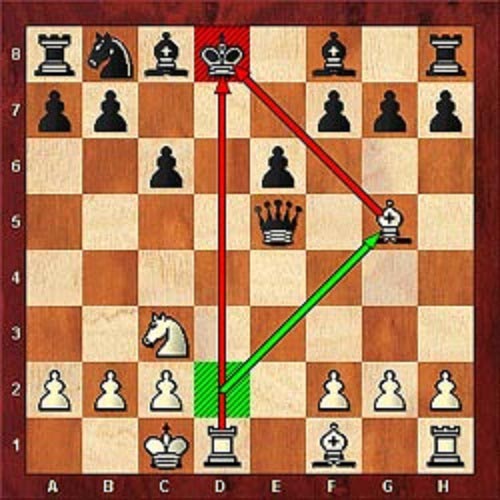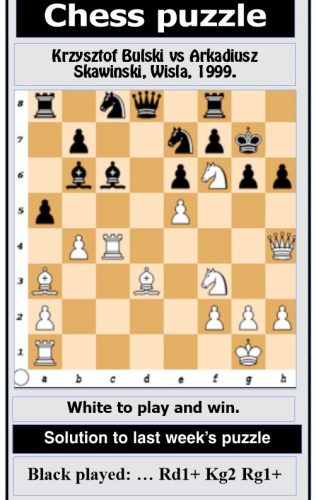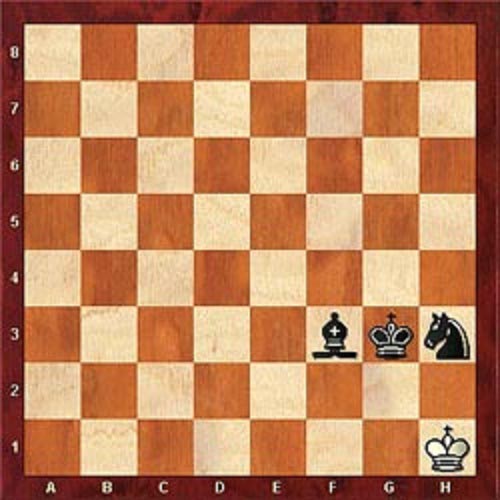
Insufficient material
When a player cannot force checkmate owing to inadequate material the game is drawn automatically. If two Kings stand alone on the chessboard and there are no other pieces, the game is drawn. Once a player has checkmating material, the game is not drawn. You cannot force checkmate with a King and Knight vs the King, neither can you do it with a King and Bishop vs the King. In those circumstances, the game is drawn. However, checkmate can be effected with two Bishops or two knights vs the lone King.

50-move rule
The 50-move rule allows either player to claim a draw if no capture has been made or no pawn has been moved for the last 50 moves.
Repetition
The threefold repetition rule says if a position arises three times in a game either player can claim a draw during that position. This rule was created to avoid games repeating the identical positions indefinitely. During such a situation the draw happens on the third repetition.
Agreement
When both players decide they want to draw the game, there is a draw by agreement. Most of the time they believe that neither player can obtain an 





